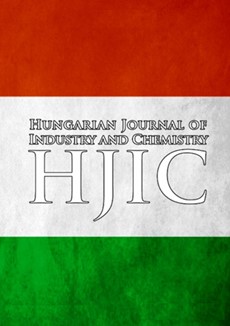Developing Plant Models of Reduced Complexity by Chemical Process Engineering Way of Thinking
DOI:
https://doi.org/10.33927/hjic-2022-09Keywords:
plant model, reduced complexity, stoichiometric processes, process network, supply/demand logistics, natural self-controlAbstract
Given the increasing complexity of agricultural systems within the broader context of the bio-based circular economy, simplified and unified plant models are needed that represent the primary biomass production by solar-driven carbondioxide sequestration. Utilizing experiences from process systems engineering, which was originally inspired by chemical engineering, a suitable plant model is proposed. The structure of the model is generated from the process net of the
underlying state and transition elements. Two special-state elements are introduced for the short-term storage of the supplied biomass to be distributed and the uptake of nutrient-containing water, necessary for evapotranspiration and photosynthesis. The transition-oriented description of functionalities follows the essential causalities and balances of natural self-control. Implementation of the model is illustrated by a simple example.




